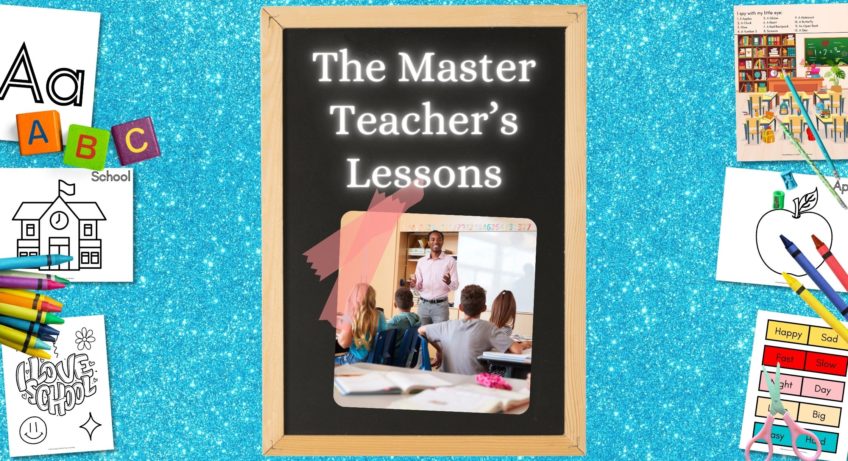Today I’m going to be sharing important lessons we can learn from the greatest Teacher of all time. Who was He? Jesus Christ. By looking at His style of teaching, there is much we can learn and implement into our own teaching.
The Use of Stories
One of the first observations about how He taught is that He used stories and simple, real-life illustrations. He used examples that his audience would relate to and understand. Many of his parables were about common people such as shepherds, farmers, servants, and housewives. He talked about events like weddings and feasts. His illustrations would have been quite familiar to His audience and easy for them to understand. He then used these stories to lead further into the topic He was teaching.
When we are teaching our students, we should sprinkle simple and relatable illustrations throughout our lessons. By using illustrations and stories, we can make our lessons memorable and more meaningful to our students. And the more they remember and learn, the better they will be able to implement what they learn into the various areas of their lives.
Another conclusion that we can draw from this is that Jesus knew His audience. He knew their needs and what would most resonate with them. He used this knowledge so that His lessons would meet their needs and draw them to Himself.
We should be observing our students, discovering the needs each one has, seeking to know them as individuals. For those teaching in a classroom with a large number of students, this is more challenging, but it can still be done to a certain extent. When we learn our students’ needs, we can use what we know in tailoring our lessons so that those needs are being met.

The Use of Humor
Jesus also used humor when teaching. While we may not notice a lot of humor when we read His teachings in the Bible, it is there. The Jews of that day just had a different kind of humor than we do today.
If we include humor in our lessons, our students will be more engaged, more likely to pay attention, and more likely to remember what we teach.
Encouraging Questions
Jesus taught in such a way that his audience would ask questions and seek out what He meant. Many times, we see Jesus’ disciples coming to Him with questions about what He had said. Then Jesus would explain a parable’s meaning or further share on the topic He had been teaching about.
We as teachers should teach in a way that our students are interested in what we are teaching and want to dig deeper into it. We should be arousing their interest on the topic we are teaching since this will encourage them to explore it further.
Meeting Needs
One other lesson we can learn from Jesus that does not directly relate to how He taught is that He showed love and compassion to those around Him. He didn’t just teach the people who flocked to see Him; He also met their needs. He healed the sick, miraculously provided food, and even raised the dead and stopped dangerous storms.
In our own way, we can seek to meet our students’ needs. We can be a listening ear when they need one. We can provide them with encouragement and show them that we truly love and care about them. When students know we care, they will be more likely to take notice of what we are saying when we teach them.
Conclusion:
Since Jesus was God, He was a perfect teacher. We will never be able to teach perfectly but should always be seeking out ways to improve our teaching and be better able to leave a lasting impact for good on the lives of our students.
What about you? Have you studied the teaching styles Jesus used? Have you set out to specifically incorporate them into the way you teach? Can you think of other helpful ways we can apply the way He taught to our own teaching? Let me know in the comments!
For more content like this, lesson plans, and extra teaching tips, go ahead and sign up for my e-newsletter.



Great lessons, Hannah! I never considered this aspect before but it’s so true. 🙂
Thank you, Katja!